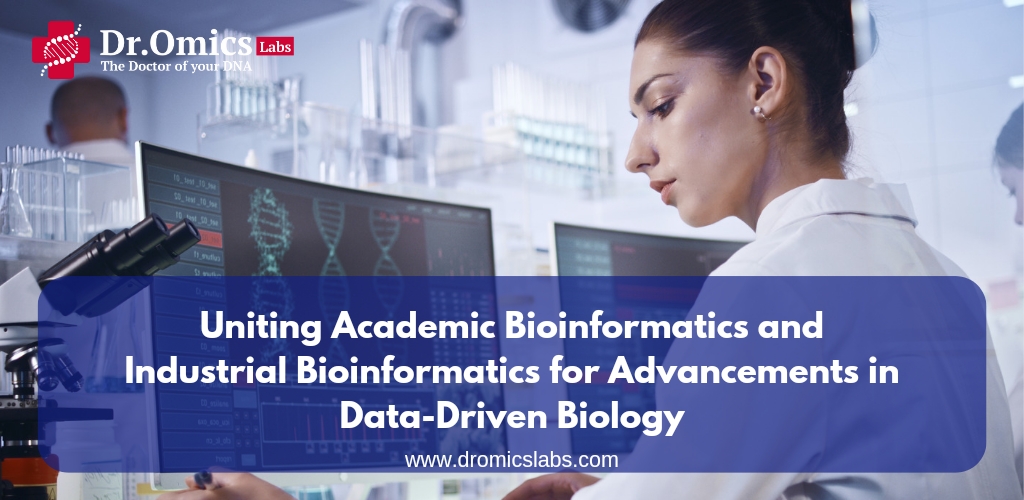Bioinformatics develops as a region of limitless possibility in the science and technology, where biology converges with computing capability. Consider a future in which every strand of DNA contains the key to revolutionary discoveries and individualized therapy. Welcome to the dynamic world of Bioinformatics, a discipline that bridges conventional divides by combining biology, computer science, mathematics, and statistics.
But why should you go into the fascinating world of bioinformatics? In this analysis, we’ll uncover the huge potential and top 10 jobs in Bioinformatics possibilities in India. What jobs can you get with bioinformatics for individuals who begin on this exciting journey.
Is Bioinformatics a good career option?
Bioinformatics is a rapidly growing field that combines biology, computer science, mathematics, and statistics to analyse and interpret various types of biological data. Bioinformatics has many applications in different areas of life sciences, such as genomics, proteomics, pharmacology, microbiology, and biotechnology. Bioinformatics professionals use various tools and methods to store, manage, and process large and complex datasets, such as DNA sequences, gene expression, protein structures, and molecular interactions.
Scope of studying Bioinformatics in India
To get a job in bioinformatics, you’ll likely need a specific skill set and additional qualifications that can help you succeed in the role. Most entry-level jobs in bioinformatics require at least a bachelor’s degree. If your school doesn’t offer a bioinformatics major, you can also major in computational biology, biomathematics, computer science, life sciences or statistics. To pursue higher-level bioinformatics jobs, you’ll probably need a master’s degree or a doctoral degree. Your graduate program will likely include classes like chemistry, biology, computer programming, genetics, linear algebra and statistics.
Bioinformatics is a highly innovative and exciting field that works to discover new drug technology, gene expression studies and gene sequencing. With bioinformatics, medical professionals can create far more customized medical treatments for patients by using their DNA data. Bioinformatics is helping scientists identify connections between a disease and the genetic sequences that cause them. Bioinformatics is also a challenging field that requires individuals to proficient in computer skills and to have a strong background in biology and mathematics.
If you are passionate about researching in the areas of biology using both computer science and technology, then bioinformatics might be a good career option for you. You can work in various sectors of pharmaceutical, biomedical, biotechnology, in research institutions, hospitals, industries and even NGOs. You can also work as a teacher in private and public colleges.
Top 10 Bioinformatics jobs in India
1.Bioinformatics Scientist
Bioinformatics scientists are responsible for developing and applying computational tools and techniques to analyze and interpret biological data. They may work in a variety of settings, including pharmaceutical companies, government agencies, and research institutions. Some of the specific tasks that bioinformatics scientists may perform include:
- Developing algorithms to identify patterns in biological data
- Creating databases of biological information
- Analyzing genetic data to identify genetic variations that are associated with disease
- Developing models of biological systems
2.Bioinformatician
Bioinformaticians are experts in the analysis and interpretation of biological data using computational methods. They have a strong foundation in both biology and computer science, and they are able to apply their knowledge to a wide range of problems in the field of biology. Some of the specific tasks that bioinformaticians may perform include:
- Developing algorithms and software tools for analyzing biological data
- Managing and analyzing large datasets of biological information
- Identifying patterns and trends in biological data
- Developing models of biological systems
- Interpreting the results of biological analyses
3.Bioinformatics Analyst
Bioinformatics analysts are responsible for collecting, organizing, and analyzing biological data. They may use this data to identify new genes, develop new drugs, or understand how diseases work. Some of the specific tasks that bioinformatics analysts may perform include:
- Collecting biological data from various sources
- Cleaning and organizing biological data
- Analyzing biological data to identify trends and patterns
- Preparing reports and presentations on biological data
4.Bioinformatics Programmer
Bioinformatics programmers are responsible for developing software to collect, store, and analyze biological data. They may also develop algorithms for identifying patterns in biological data. Some of the specific tasks that bioinformatics programmers may perform include:
- Designing and developing software applications for bioinformatics
- Writing algorithms for analyzing biological data
- Testing and debugging bioinformatics software
- Maintaining and updating bioinformatics software
5.Bioinformatics Engineer
Bioinformatics engineers are responsible for designing and building computer systems to manage and analyze biological data. They may also work with biologists to develop and implement new computational tools. Some of the specific tasks that bioinformatics engineers may perform include:
- Designing and building computer networks for bioinformatics research
- Developing and implementing new algorithms for analyzing biological data
- Installing and configuring bioinformatics software
- Troubleshooting bioinformatics problems
Also Read :- Decoding the Mysteries of Y Chromosome in Humans : Evolution, Forensics, and Bioinformatics.
6.Database Programmer
Database programmers are responsible for developing and maintaining databases of biological data. They may also work with bioinformatics scientists and analysts to develop new ways to query and analyze biological data. Some of the specific tasks that database programmers may perform include:
- Designing and creating databases for bioinformatics data
- Writing SQL queries to retrieve data from bioinformatics databases
- Maintaining and updating bioinformatics databases
- Providing technical support to bioinformatics scientists and analysts
7.Network Administrator/Analyst
Network administrators and analysts are responsible for maintaining computer networks that support bioinformatics research. They may also troubleshoot network problems and provide technical support to bioinformatics scientists and analysts. Some of the specific tasks that network administrators and analysts may perform include:
- Installing and configuring network hardware and software
- Monitoring network performance and troubleshooting problems
- Providing technical support to bioinformatics scientists and analysts
- Ensuring the security of bioinformatics data
8.Pharmacogenomics Scientist
Pharmacogenomics scientists are responsible for studying the relationship between genetics and drug response. They may develop new drugs that are more effective for certain patients based on their genetic makeup. Some of the specific tasks that pharmacogenomics scientists may perform include:
- Analyzing genetic data to identify genetic variations that are associated with drug response
- Developing new drugs that are targeted to specific genetic variations
- Conducting clinical trials of pharmacogenomics-based therapies
9.Computational Biologist
Computational biologists use computers to study biological systems. They may develop models of cells, organisms, or ecosystems to understand how these systems work. Some of the specific tasks that computational biologists may perform include:
- Developing mathematical models of biological systems
- Simulating biological systems on computers
- Analyzing the results of simulations to understand biological phenomena
- Publishing research papers on computational biology
10.Biotechnology Consultant
Biotechnology consultants provide expert advice to companies in the biotechnology industry. They may help companies develop new products, improve their manufacturing processes, or comply with government regulations. Some of the specific tasks that biotechnology consultants may perform include:
- Conducting market research and analyzing industry trends
- Developing business plans for biotechnology companies
- Helping companies obtain funding for biotechnology research
- Providing regulatory advice to biotechnology companies
Bioinformatics online course and certification
Are you interested in learning bioinformatics, the cutting-edge field that combines biology, computer science and mathematics? Do you want to gain practical skills and knowledge that can help you pursue a rewarding career in bioinformatics? If yes, then you should enroll in the bioinformatics online certification course offered by DrOmics labs, a leading company in bioinformatics solutions and services.
DrOmics labs is a pioneer in providing bioinformatics training and education to students, researchers and professionals from various backgrounds. The bioinformatics online certification course is designed to teach you the fundamentals of bioinformatics, such as data analysis, programming, databases, algorithms, genomics, proteomics, transcriptomics, metabolomics and more. You will also learn how to use various bioinformatics tools and software, such as R, Python, Bioconductor, BLAST, Clustal, MEGA, Cytoscape, etc.
DrOmics Courses
- The bioinformatics online certification course is a live, and interactive course that you can access anytime and anywhere as you will be provided the recording of every live session after the class.
- You will have access to high-quality video lectures, quizzes, assignments, projects and case studies.
- You will also have the opportunity to interact with expert instructors and mentors, who will guide you and provide feedback throughout the course.
- Upon successful completion of the course, you will receive a certificate of achievement from DrOmics labs, which will enhance your resume and showcase your skills and knowledge in bioinformatics.
The bioinformatics online certification course is suitable for anyone who wants to learn bioinformatics, whether you are a beginner or an advanced learner. You do not need any prior experience or background in bioinformatics, as the course will cover everything from the basics to the advanced topics. You only need a computer with an internet connection and a passion for learning.
If you are ready to start your journey in bioinformatics, then do not miss this opportunity to enroll in the bioinformatics online certification course offered by DrOmics labs. The course is open for registration now and has limited seats available. To enroll, visit the course website and fill out the online application form. Hurry up and join the bioinformatics online certification course today and become a part of the bioinformatics community.




